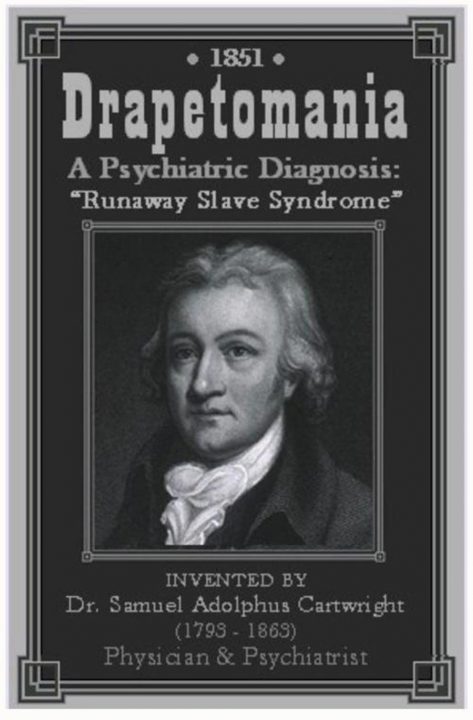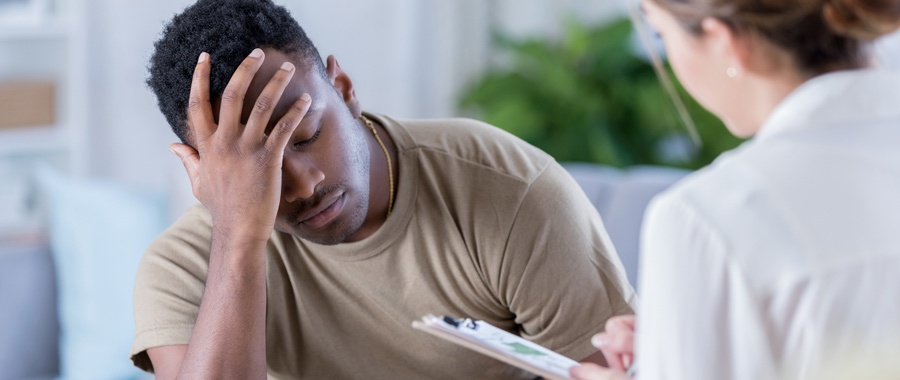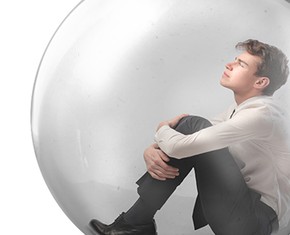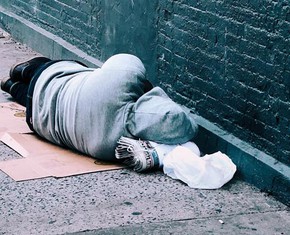The views expressed in our content reflect individual perspectives and do not represent the authoritative views of the Baha'i Faith.
Whether we experience microaggressions or more extreme forms of violence, racism is traumatic, painful, and debilitating. It can thwart our progress and wound our spirit. And these wounds caused by racism can affect our mental health, too.
As Abdu’l-Baha, the son of Baha’u’llah, the prophet and founder of the Baha’i Faith said in a talk more than a century ago:
“But when sadness visits us we become weak, our strength leaves us, our comprehension is dim and our intelligence veiled. The actualities of life seem to elude our grasp, the eyes of our spirits fail to discover the sacred mysteries, and we become even as dead beings.”
Some people of color need professionals who can help them cope and heal their mental wounds. But a 2013 study found that many African Americans are apprehensive about acknowledging psychological problems and seeking professional help for them. According to the National Alliance on Mental Illness, only “30% of African American adults with mental illness receive treatment each year, compared to the U.S. average of 43%.”
“There is a fear of losing control. There is a sense of needing to do things on our own to be independent to not have our minds — our bodies — controlled by anything,” says Lisa Jordan, a clinical psychologist who is a Baha’i practicing in Catonsville and Towson, Maryland.
In addition, flagrant stereotyping of entire groups of people manifests itself through mistreatment and misdiagnosis. This perpetuation of injustice is one of the reasons why Shoghi Effendi wrote, in 1938, that every Baha’i must have, “A rectitude of conduct, an abiding sense of undeviating justice, unobscured by the demoralizing influences which a corruption-ridden political life so strikingly manifests.”
As a result of racial injustice, Lisa believes African Americans fear and distrust psychiatry. “And maybe this has to do with a long history of oppression [and] external control.”
Historical Racism in the Mental Health Field
The historical racism in the mental health field has many people of color, especially African Americans, understandably wary about seeking mental help. Shoghi Effendi, one of the central figures of the Baha’i Faith, referred to this racism as a “cancerous growth…which is eating into the vitals of an already debilitated society.”
Throughout the 19th and 20th centuries, white physicians published pseudoscience that depicted African Americans in a racist manner. Official government data also depicted black people as inferior. An analysis of the 1840 U.S. Census Report, for example found that insanity rates of African Americans had been falsified to give the illusion that the further north they lived, the more likely they would be to have a mental illness. Dr. Samuel A. Cartwright, a 19th century physician who practiced in Mississippi and Louisiana, even said that the urge to escape slavery was a mental health disorder, which he called “drapetomania.”

In the book “Medical Apartheid – The Dark History Of Medical Experimentation On Black Americans From Colonial Times To The Present,” author Harriet Washington wrote that “physicians had every motive to skew narratives against their black subjects, not because they were especially racist or unfair (although many were) but because the culture of American medicine has mirrored the larger culture that encompassed enslavement, segregation and less dramatic forms of racial inequality. In addition, wrote Harriet, “physicians’ accounts carefully inculcated beliefs about black fearfulness, credulousness, emotional instability, and a tendency toward falsehoods that helped to discount claims of abuse.”
This pseudoscience wasn’t only used to oppress African Americans. In 1955, the Armed Forces Medical Journal published the “Puerto-Rican syndrome,” which was described as a malady that varied “in description depending on one’s medical/anthropological/political perspective and/or agenda,” according to the Journal of the National Medical Association.
Several decades of international studies have reported that, compared to white patients with the same symptoms, African Americans, Afro-Caribbean, and Latinx patients are over diagnosed with serious mental illnesses — like schizophrenia and bipolar disorder — but underdiagnosed with more easily treatable mood disorders. This has caused many people of color to be wrongly admitted to psychiatric hospitals. This trend results from the bias and prejudice of clinicians and a lack of cultural understanding.
Clinician Bias
Shoghi Effendi described bias as an “usually inherent and at times subconscious sense of superiority” and advised white people “to correct their tendency towards revealing a patronizing attitude towards the members of the other race.” According to an article written by Robert La Bril, Derek H. Suite, Annelle Primm, and Phyllis Harrison-Ross, clinicians often — consciously or unconsciously — think patients of color are incapable of “complex structured cognitive mechanisms typical of psychoneurosis. As such, the psychological issues of people of color seem simpler, elementary and typical of textbook sociopathic behavior, and may be further characterized as emotionally unstable, inadequate personality, simple maladjustment and temperamental unsuitability.”
Black children are, unfortunately, not exempt from this bias. In a 2018 interview with the nonprofit news organization MinnPost, Willie Garnett, a psychologist in private practice and president of the Minnesota Association of Black Psychologists, said that “African-American children frequently are prescribed attention deficit disorder meds even when they are actually showing appropriate behavior.” Clinicians are even 23% more likely to dominate the conversation and 33% less likely to have communication that is centered around the patient when they are seeing an African American patient compared to their white patients, according to the American Journal of Public Health.
“A lot of black people feel judged all the time,” Cynthia Fashaw told MinnPost. “I went to a provider to talk about my daughter. She lives with autism and anxiety and depression. The nurse asked me, ‘Do you work? Do you have a job?’ and ‘‘Is the father involved?’” And, explained, Cynthia, “They thought they were doing a good job, but they used all of this loaded, coded language.”
Unfortunately, both mental and physical health issues that have predominately plagued people of color have not been taken as seriously. “The heroin epidemic was historically in the African American community and then in the early 2000s, they started to see a rise in younger white suburban users,” says Angela Caldwell, a Baha’i who is a certified addictions counselor at Montgomery Recovery Services, in Rockville, Maryland. When young white people “became affected, then the world cared, and we even started seeing a change in the lingo,” Angela says.
“You know, we used to say ‘addicts.’ Now we say people with ‘substance use disorder’ or ‘opioid use disorder.’ Now that it’s affected a population that the world cares about, now it’s called an ‘opioid epidemic.’ Well there was an opioid epidemic in the ‘70s, and we didn’t get the attention because it was predominantly African Americans [affected by it].”
Barriers to Healthcare
Lisa Jordan, the clinical psychologist who practices in Maryland, explained that two major barriers prevent African Americans from receiving the mental health treatment they need: 1) A lack of insurance, and 2) A lack of culturally appropriate care.
According to the American Psychological Association, people with fewer financial resources are being denied getting the treatment they need. Abdu’l-Baha, the son of the prophet and founder of the Baha’i Faith, said in a talk in 1912, “He [Baha’u’llah] admonished all that we must be the servants of the poor, helpers of the poor, remember the sorrows of the poor, associate with them; for thereby we may inherit the Kingdom of heaven.”
“It is difficult to be a minority, and we often have less access to mental health services because we lack insurance,” Dorothy Lemon-Thompson, a Baha’i who is a psychotherapist and licensed clinical social worker in Towson, Maryland, wrote in an email to me. “Many people needing mental health services end up in the penal system instead of the health care system. Lack of resources and access to mental health services takes a toll.”
Lisa also explained that there “are two systems of care — there is a system of care for people who can afford to pay out of pocket, and then there’s a system of care for people who need to use insurance and they’re not always the same. And a lot of that is actually based on misperceptions among providers.” Lisa shared that she works at a clinic that focuses on anxiety and stress disorders. The clinic doesn’t take insurance, but she also has her own private practice where she does.
“Unfortunately, one of the myths that is perpetuated by the out-of-network practitioners is that there are no good providers that are in-network, and therefore, in order to get good quality care, you have to pay out of pocket. So, I like being positioned at that intersection because I’m the same person. I work at that clinic, and I also work at my private clinic where I do take insurance, and the care is the same,” she says.
A lack of culturally appropriate care is another major barrier to mental healthcare that many people of color face. Of course, it is more difficult for white healthcare providers to be culturally sensitive because they may be unaware of their bias, and African Americans are less likely to be included in psychological research. A lack of cultural understanding, for instance, has even led clinicians to view spiritual beliefs and cultural mistrust as pathological.
Fortunately, more women of color are entering the mental health field, and in the past decade, more African Americans have reached out to get help. “There are many more African Americans coming to therapy,” Dorothy wrote. “My practice is probably more than half. Men are also coming. The idea that they are not coming is changing.”
It’s wonderful that many people of color are entering the mental health field and providing a safe space for those who need it. But, justice is also needed to ensure that everyone gets access to health care. As Baha’u’llah wrote:
“O SON OF SPIRIT! The best beloved of all things in My sight is Justice; turn not away therefrom if thou desirest Me, and neglect it not that I may confide in thee. By its aid thou shalt see with thine own eyes and not through the eyes of others, and shalt know of thine own knowledge and not through the knowledge of thy neighbor. Ponder this in thy heart; how it behooveth thee to be. Verily justice is My gift to thee and the sign of My loving-kindness. Set it then before thine eyes.”
As long as racism operates at every level in our society, we don’t have justice. It’s everyone’s responsibility to dismantle the barriers and injustices in the arenas where we have influence.
















Comments
Sign in or create an account
Continue with Googleor